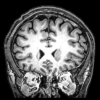
Sarcosine in the treatment of depression (not just schizophrenia)
#31
Posted 27 September 2014 - 10:12 PM
#32
Posted 28 September 2014 - 04:05 PM
For me mirtazapine doesn't have that effect. I can't use it as a stand alone antidepressant though, it seems to cause too much NE signaling and not enough 5ht signaling and I get anxious on it.
I have been amazed at the results I am having with memantine for anxiety. I had no clue that it would be such an effective anxiolytic for me. This was the main reason that I was initially afraid to try sarcosine; thinking if memantine antagonizes the glutamate system and sarcosine agonizes it and memantine is working great for anxiety don't try sarcosine. But, for me, they're not cancelling each other out and I'm getting a good result from both so that suggests that it's not as simple as agonize/antagonize the glutamate system. I'm currently taking 20 mg once a day, no brain fog issues for me. You might consider trying memantine for your anxiety.
Medievil, sorry it was a little confusing I used SAD in this case to mean seasonal affective disorder not social anxiety disorder, acronyms kind of suck some times.The shortening of the day just depresses me even if everything else is going wonderfully for me at the time.
Funny that mirtazapine caused you anxiety but was one of the best things to treat mine once I got up to the higher doses. I also have tried memantine but didn't notice any effect from it whatsoever. If I recall correctly I think I tried 10mg, 20mg and 40mg doses but didn't really feel anything from it.
Edited by Al Capacino, 28 September 2014 - 04:06 PM.
sponsored ad
#33
Posted 28 September 2014 - 06:14 PM
For me mirtazapine doesn't have that effect. I can't use it as a stand alone antidepressant though, it seems to cause too much NE signaling and not enough 5ht signaling and I get anxious on it.
I have been amazed at the results I am having with memantine for anxiety. I had no clue that it would be such an effective anxiolytic for me. This was the main reason that I was initially afraid to try sarcosine; thinking if memantine antagonizes the glutamate system and sarcosine agonizes it and memantine is working great for anxiety don't try sarcosine. But, for me, they're not cancelling each other out and I'm getting a good result from both so that suggests that it's not as simple as agonize/antagonize the glutamate system. I'm currently taking 20 mg once a day, no brain fog issues for me. You might consider trying memantine for your anxiety.
Medievil, sorry it was a little confusing I used SAD in this case to mean seasonal affective disorder not social anxiety disorder, acronyms kind of suck some times.The shortening of the day just depresses me even if everything else is going wonderfully for me at the time.
Funny that mirtazapine caused you anxiety but was one of the best things to treat mine once I got up to the higher doses. I also have tried memantine but didn't notice any effect from it whatsoever. If I recall correctly I think I tried 10mg, 20mg and 40mg doses but didn't really feel anything from it.
Using an alpha-1 blocker (prazosin, doxasozin, tamulosin) or 5-ht1A antagonist seems to be a good way to alleviate remeron induced anxiety...though for me,, Rem helped my anxiety....traz was better though. ^_^
Edited by Area-1255, 28 September 2014 - 06:15 PM.
#34
Posted 28 September 2014 - 08:13 PM
Using an alpha-1 blocker (prazosin, doxasozin, tamulosin) or 5-ht1A antagonist seems to be a good way to alleviate remeron induced anxiety...though for me,, Rem helped my anxiety....traz was better though. ^_^
Alpha-1 blockers look kind of interesting. Thanks for the info.
#35
Posted 06 October 2014 - 09:52 PM
I have been doing some research into sarcosine for the treatment of neuropathic pain. It seems to have success in mice and rats and it may have something to do with NR1 downregulation. Translating the doses used for neuropathy yield something round 3g to 8g a day but i am concerned that it could cause anxiety or unwanted side effects. However it seems possible that even lower doses (such as those for schizophrenia/depression) could still down regulate NR1. So i'm wondering if anyone noticed any decrease in their sensitivity to pain?
I realize it may not be something you guys have consciously paid attention to but its worth asking.
Also, if anyone is interested in this i'll include the links to some finds.
http://www.ncbi.nlm....pubmed/19577367
Prefrontal cortex and spinal cord mediated anti-neuropathy and analgesia induced by sarcosine, a glycine-T1 transporter inhibitor.
http://www.ncbi.nlm....pubmed/24598217
Long-term application of glycine transporter inhibitors acts antineuropathic and modulates spinal N-methyl-D-aspartate receptor subunit NR-1 expression in rats.
http://www.ncbi.nlm....pubmed/12832526
A conditional deletion of the NR1 subunit of the NMDA receptor in adult spinal cord dorsal horn reduces NMDA currents and injury-induced pain.
-Mnemonic
#36
Posted 12 October 2014 - 09:47 PM
I'm really confused by this.
I thought that OCD was caused by too much glutamate and that NMDA antagonists supposedly help with it (memantine,NAC).
And Sarcosine does exactly the opposite of memantine and it also helps with OCD? How does this fit together?
#37
Posted 13 October 2014 - 06:13 PM
Well, I don't know. The complexity of the brain-system humbles one, eh? I'm actually trying out NAC and Sarcosine together and it would seem that after 2.3 months on NAC and one week on Sarcosine my OCD is reduced 85-95% (subjectively lol).
However its possible that Sarcosine helps OCD by something called "fear extinction", in other words helps your brain get rid of old fears.
Also something definitely note-worthy is that as the NAC regimen reached the 2 month mark I began to notice marked improvement, however i also became somewhat cognitively dull and a bit sleepy. Sarcosine was able to either mantain or augment the efficacy of the anti-ocd effect of NAC and remove the fogginess.
And its not that simple you know, NAC does eventually lower glutamate release enough to be therapeutic but it also enhances NDMA signaling (by increasing glutathione and therefore reducing oxidative stress) on the same token, it seems sarcosine down regulates NR-1 subunit of NDMA receptors.
What this actually all means, I don't know...I am humbled...but happy my OCD is in remission. ![]()
#38
Posted 13 October 2014 - 09:46 PM
Well, I don't know. The complexity of the brain-system humbles one, eh? I'm actually trying out NAC and Sarcosine together and it would seem that after 2.3 months on NAC and one week on Sarcosine my OCD is reduced 85-95% (subjectively lol).
However its possible that Sarcosine helps OCD by something called "fear extinction", in other words helps your brain get rid of old fears.
Also something definitely note-worthy is that as the NAC regimen reached the 2 month mark I began to notice marked improvement, however i also became somewhat cognitively dull and a bit sleepy. Sarcosine was able to either mantain or augment the efficacy of the anti-ocd effect of NAC and remove the fogginess.
And its not that simple you know, NAC does eventually lower glutamate release enough to be therapeutic but it also enhances NDMA signaling (by increasing glutathione and therefore reducing oxidative stress) on the same token, it seems sarcosine down regulates NR-1 subunit of NDMA receptors.
What this actually all means, I don't know...I am humbled...but happy my OCD is in remission.
Great answer! Everything is so friggen complex, especially for us amateurs, that sometimes I think we're just enormously lucky when we find anything that helps. ![]()
To give one answer to your previous question on pain; I have some chronic repetitive usage injury pain, but I can't say that I've noticed any marked improvement to it on sarcosine. I'm at 2 grams/day now and it might not be enough.
#39
Posted 13 October 2014 - 10:08 PM
Actually, the more expert and knowledgeable one is, the greater the understanding of just how formidably complex the brain is.
#40
Posted 13 October 2014 - 10:18 PM
Actually, the more expert and knowledgeable one is, the greater the understanding of just how formidably complex the brain is.
Really good point.
#41
Posted 13 October 2014 - 10:42 PM
Well, I don't know. The complexity of the brain-system humbles one, eh? I'm actually trying out NAC and Sarcosine together and it would seem that after 2.3 months on NAC and one week on Sarcosine my OCD is reduced 85-95% (subjectively lol).
However its possible that Sarcosine helps OCD by something called "fear extinction", in other words helps your brain get rid of old fears.
Also something definitely note-worthy is that as the NAC regimen reached the 2 month mark I began to notice marked improvement, however i also became somewhat cognitively dull and a bit sleepy. Sarcosine was able to either mantain or augment the efficacy of the anti-ocd effect of NAC and remove the fogginess.
And its not that simple you know, NAC does eventually lower glutamate release enough to be therapeutic but it also enhances NDMA signaling (by increasing glutathione and therefore reducing oxidative stress) on the same token, it seems sarcosine down regulates NR-1 subunit of NDMA receptors.
What this actually all means, I don't know...I am humbled...but happy my OCD is in remission.
Exactly, it's a paradox ; NMDA blockade reduces fear output, but by numbing and lowering nervous system electrical impulses, whereas NMDA activation, in moderate but not excessive amounts, allows for adaptive fear processing and fear extinction, in addition to adapting to other anxiogenic / stressful stimuli. NMDA antagonism over time eventually yields the opposite effect, as your brain signals to raise calcium channels by other receptors and mechanisms which may be pathway dependent and yield a different effect.....compensation mechanisms fellas!
On the physiological level, NMDA blockade associates this way by means of not just a reduction of calcium channel voltage, but also a reduction of intracellular and presumably, extracellular as well - nitric oxide. This can be bad as well, and may represent one way that NMDA receptor activation may be better in the long run, because nitric oxide helps mediate adrenergic responses and can reduce the harmful effects of excess adrenaline by modulating at a central level.
NMDA blockade results in alterations that may be favorable as far as the dopamine transporter, but may also skyrocket endorphins which may eventually cause endocrine disruption, in addition NMDA receptors are directly coupled to GnRH neurons (Gonadotropin Releasing Hormone ) - which means blocking them results in less testosterone and probably other neurosteroids that may be very helpful in cognitive function and in alleviating depression.
Edited by Area-1255, 13 October 2014 - 10:47 PM.
#42
Posted 14 October 2014 - 01:44 AM
I wonder has sarcosine been tested for safety and interactions?
For example do we know if sarcosine is safe with antidepressants like ssri?
If stuff like sarcosine was made by reputable pharma companies where you can it's pure and if they also provided a leaflet with interactions
then I'd try it but simply buying something online with no leaflet and no interaction informations seems risky to me.
#43
Posted 14 October 2014 - 03:35 AM
^ Sarcosine is a naturally occurring substrate with no significant tendency toward contraindications of significance.
compensation mechanisms fellas!
Never underestimate the homeostatic directive of physiology and the action/reaction factors within such
Handbook of Clinical Psychopharmacology for Psychologists
Have a quick read through here, one among many sound basic texts, for further enlightenment ![]()
#44
Posted 14 October 2014 - 04:56 AM
Here you speak about no adverse effects. Are you 100% sure? or is just that there are no reports of adverse effects yet?
Can you quote the source that says it please ?
#45
Posted 14 October 2014 - 12:38 PM
^ A negation such as this can never be considered as absolute of course, however, by all points adverse effects of any significance are of an extremely low potential
I do not have a reference, but within evaluation on many accounts it is that which is a valid determination. Would you as well need testing and a listing of contraindications for the dietary intake of other natural supplements?
Anyway, you can conduct your own risk vs. reward, as one should do within any movement in life, but related dietary supplement agents (Trimethyl and Dimethyl Glycine) that are metabolized to sarcosine have been on the market for decades, so if that is not something that is good enough for you, I doubt much would be except a formal published evaluation, which I am not of that exists as I never bothered within implied safety (high therapeutic index) from my standpoints and evaluations.
Oh, BTW, I guess I'll state now that in-house research TLR has had for quite some time demonstrates that TMG and DMG may be overall superior agents for oral supplementation within the goal of enhancing sarcosine levels. If one has some issue with over-methylation this may not be the best route, but otherwise it would seem to be superior overall, best within a matrix of all three. And of course TMG and DMG are readily available and less costly at this time (for no reason other than common commercial availability itself, as obviously they are all inexpensive to produce).
TeamTLR was going to release such a matrix for research as an Optimized Matrix that we have designed and that included one other agent that was key for the most optimal efficacy. This matrix within evaluation appears to be most optimal, however we have not as yet placed that into the 'priority pipeline'. We will state publicly this has been found to be a superior formulation for this purpose within our testing schema.
Hope something here helps someone or fosters some progressive research of worth...
#46
Posted 14 October 2014 - 05:23 PM
NMDA blockade results in alterations that may be favorable as far as the dopamine transporter, but may also skyrocket endorphins which may eventually cause endocrine disruption, in addition NMDA receptors are directly coupled to GnRH neurons (Gonadotropin Releasing Hormone ) - which means blocking them results in less testosterone and probably other neurosteroids that may be very helpful in cognitive function and in alleviating depression.
Do I understand you correctly? I mean are you saying that blocking NDMA increases the bodies opiates? I have a little grasp that NDMA receptor(s) are involved in the sensitization of pain but are you saying it also leads to increased endorphin production? That would be fantastic for someone in (chronic) pain.
The GnRH part is problematic...
Edited by Mnemonicsmoke, 14 October 2014 - 05:26 PM.
#47
Posted 23 December 2014 - 03:18 AM
I'd just like to let every know I've been taking sarcosine to successfully baffle chronic depression.
Recently I took an ibuprofen with my dose and felt an immediate positive effect. In fact it was so strong I did it a couple more times. Same thing. Incredibly boosted effects -- almost verges on feeling like MXE (although sarcosine is the opposite -- an NMDA co-agonist).
Wondering if anyone else on sarcosine would give this a try (take it with Ibuprofen). Might be on to something.
EDIT: Currently taking a single 200mg tablet of Ibuprofen with 700mg sarcosine, twice a day.
Edited by nbrk, 23 December 2014 - 03:39 AM.
#48
Posted 23 December 2014 - 03:33 AM
NMDA blockade results in alterations that may be favorable as far as the dopamine transporter, but may also skyrocket endorphins which may eventually cause endocrine disruption, in addition NMDA receptors are directly coupled to GnRH neurons (Gonadotropin Releasing Hormone ) - which means blocking them results in less testosterone and probably other neurosteroids that may be very helpful in cognitive function and in alleviating depression.
Do I understand you correctly? I mean are you saying that blocking NDMA increases the bodies opiates? I have a little grasp that NDMA receptor(s) are involved in the sensitization of pain but are you saying it also leads to increased endorphin production? That would be fantastic for someone in (chronic) pain.
The GnRH part is problematic...
Exactly, good for pain and some forms of anxiety, bad for nitric oxide systems/vasodilation sex hormones and libido....
#49
Posted 05 June 2015 - 06:29 AM
NMDA blockade results in alterations that may be favorable as far as the dopamine transporter, but may also skyrocket endorphins which may eventually cause endocrine disruption, in addition NMDA receptors are directly coupled to GnRH neurons (Gonadotropin Releasing Hormone ) - which means blocking them results in less testosterone and probably other neurosteroids that may be very helpful in cognitive function and in alleviating depression.
Do I understand you correctly? I mean are you saying that blocking NDMA increases the bodies opiates? I have a little grasp that NDMA receptor(s) are involved in the sensitization of pain but are you saying it also leads to increased endorphin production? That would be fantastic for someone in (chronic) pain.
The GnRH part is problematic...
Exactly, good for pain and some forms of anxiety, bad for nitric oxide systems/vasodilation sex hormones and libido....
Is sarcosine meant to be good or bad for testosterone + libido btw? Sorry if I cannot comprehend your entire statement. Foggy right now. Comprehension lackluster.
I took 150mg sarcosine about hour ago and unless it's a coincidence or other factors involved (did start 5mg Parnate several hours ago with no ill effects) I am feeling bit more spacy now. My head feels bit more in the clouds. Maybe less underlying anxiety. Things feel bit more peaceful perhaps. Overall I feel bit less reactive. But I want more emotions, not less. For people who want emotional enhancement is Sarcosine a potential negative?
Are there certain subtypes of depression which Sarcosine is not really ideal? Such as my anhedonic, low motivation, low pleasure apathy type depression.
Or is this a case of feeling duller before feeling better? Due to potential upregulation over time? And is it meant to make me feel like going to bed? Perhaps good for sleep and wake up feeling bit better?
Edited by AlexCanada, 05 June 2015 - 06:36 AM.
#50
Posted 23 August 2015 - 01:24 PM
I just tried combeing Sarcosine with NAC 1 gram three times a day.
It pretty much cured of life long chronic depression and depresonalization.
That's a big thing to say (cured). Obviosly if I stop it will come back, but this is the closest I have been to feeling normal/sober since forever. I've tried SSRI, SNRI, TCA, Recersable MAIO's, and Ketamine, and DXM. DXM and Ketamine are the closest I've come, but I still had mad, if not wrose depersonilization symptoms and confusion weirdness. Sarcosine was the most functional thing, so I took that. Adding NAC has been nothing short of miraculous.
Sarcosine on its own (been doing for ages) helped in that it stopped me from being suicidal, and yes it did lower libido somewhat. Nothing compared to every other anit-depressant though. But combined with NAC it seems to undo that aspect. Infact it seems to make everythng better. God I wish I knew about this before.
#51
Posted 22 November 2015 - 02:53 AM
Has anybody else been using Sarcosine with success in the departments of Depression, anhedonia, and cognitive function?
Also, I find the post above mine quite perplexing. To my understanding NAC decreases extracellular glutamate levels so shouldn't combining it with
a NMDA agonist like Sarcosine dull the effects of Sarcosine? It seems as if they would not synergize at all. But then again, the mechanisms of action of these supplements
are quite complex and cannot be simplified to just one interaction. I might try the combination of NAC and Sarcosine as I suspect my glutamate levels are quite low. What's led me to believe that is I'm quite emotionally dull and I tried a myriad of things to rectify the problem including dopaminerginics, acetylcholine receptor agonist, antidepressants, etc you know name it, so messing with glutamate seems like one of my last few hopes to solving my anhedonia issues.
#52
Posted 22 November 2015 - 11:34 AM
The ibuprofen thing is quite interesting - actually it's the only OTC painkiller that is non-selective for COX-1 and also inhibits COX-2. The latter has been linked to some weird but intriguing inflammation-theory of things like schizophrenia and depression, especially over interleukin-6. I don't understand it fully yet but things begin to make sense, and COX-2 / IL-6 seem to play some important roles in mental disorders - what actually and finally makes the term 'mental illness' obsolete, it's all about the brain and mental / neuronal disorders are the same.
NMDA is really complicated. I speculate that auto receptors will be a part of the picture too, as they are with the monoamines. Ketamine, being a NMDA antagonist, actually leads to sort of a hyper-glutamatergic state! Just that these NMDAr's occupied by the Ketamine can't get activated anymore, so we have a shift towards the AMPA receptors. This could explain the pro-cognitive effects of NMDA antagonists (besides their obvious impact on memory). Maybe someone better educated can shed some light on how AMPA : NMDA signaling ratio affects cognition and memory formation etc - maybe this is oversimplified, don't know yet, but these receptors are crucial for LTP / LTD.
Fear extinction is also very remarkable about NMDA. These who respond well to NMDA antagonists like me, tend to have greatly abolished anxiety and fear from them, also increased self-esteem and sociability sometimes, as long as the glutamate disruption doesn't interfere too much with the cognitive processing. Because of this, I've been quite wary about NMDA agonists like Sarcosine - also because of the possible excitotoxicity, but that's a matter of debates - see Olney's lesions that don't seem to happen acutely in humans.
So Sarcosine has the possibility to exhibit more or less the same beneficial effects like NMDA antagonists?
But then again (what would make sense) Sarcosine has been associated repeatedly with Piracetam-like irritability - I don't tolerate the racetams at all, they make me anxious, tensed and depressed, much the opposite of what NMDA antagonists do. Seems to be a somewhat rare occurrence but has been reported by others before. Maybe genetic polymorphisms?
By the way: 'Anti-Ketamine' Agents May Also Ease Depression
Edited by dopamimetiq, 22 November 2015 - 12:09 PM.
#53
Posted 22 November 2015 - 07:06 PM
I've also tried Memantine. My experience with Memantine was absolutely wonderful. It changed my perception for the better of the world and how I see myself. I still hold those views to this day and I took Memantine almost a year ago. I guess you can say it permanently rewired my brain. I'm thinking about trying Memantine again actually.
#54
Posted 12 January 2016 - 07:00 AM
#55 Guest_Funiture2_*
Posted 02 February 2016 - 08:56 PM
Anyone know what Sarcosine might degrade into with exposure to light, oxygen, and heat? I have some old Sarcosine which has a slight funny smell to it and I noticed the texture is not the same as when I first bought it. Any way this could be toxic?
#56 Guest_Funiture2_*
Posted 03 February 2016 - 01:42 AM
I just tried combeing Sarcosine with NAC 1 gram three times a day.
It pretty much cured of life long chronic depression and depresonalization.
That's a big thing to say (cured). Obviosly if I stop it will come back, but this is the closest I have been to feeling normal/sober since forever. I've tried SSRI, SNRI, TCA, Recersable MAIO's, and Ketamine, and DXM. DXM and Ketamine are the closest I've come, but I still had mad, if not wrose depersonilization symptoms and confusion weirdness. Sarcosine was the most functional thing, so I took that. Adding NAC has been nothing short of miraculous.
Sarcosine on its own (been doing for ages) helped in that it stopped me from being suicidal, and yes it did lower libido somewhat. Nothing compared to every other anit-depressant though. But combined with NAC it seems to undo that aspect. Infact it seems to make everythng better. God I wish I knew about this before.
This is awesome. I whole-heartedly believe that glutamate dysfunction is at the core of most mental issues.
When I first started using Sarcosine (with Glycine & NAC), it seemed to act like the spark plug I was looking for. I could present my thoughts much more spontaneously and fluidly rather than forcing them. This effect has not gone away, even when I stopped Sarcosine for a week or two. But I struggle to find the dosing schedule for Sarcosine. Has anyone experienced tolerance, or a reversal of effects with regular Sarcosine use?
The reason I ask is because my experience with Sarcosine lately has been a lot different than when I first started using it. My mind finds it difficult to stay focused on one point. Especially in class, too much stimuli can be overwhelming. I've been feeling irritable and restless as well. When I'm in a conversation, I'm not really listening to what the other person is saying but preformulating what I'm going to say next, so I end up interrupting them.
Maybe regular Sarcosine use pushes your NMDA receptors excessively and only needs to be taken every so often?
#57
Posted 23 May 2017 - 01:46 PM
Pardon my ignorance, but what differences are there between straight glycine and N-methylglycine (sarcosine)? Would it be okay to supplement with glycine instead in an attempt to achieve a similar outcome?
#58
Posted 01 September 2017 - 05:18 PM
I just tried combeing Sarcosine with NAC 1 gram three times a day.
It pretty much cured of life long chronic depression and depresonalization.
That's a big thing to say (cured). Obviosly if I stop it will come back, but this is the closest I have been to feeling normal/sober since forever. I've tried SSRI, SNRI, TCA, Recersable MAIO's, and Ketamine, and DXM. DXM and Ketamine are the closest I've come, but I still had mad, if not wrose depersonilization symptoms and confusion weirdness. Sarcosine was the most functional thing, so I took that. Adding NAC has been nothing short of miraculous.
Sarcosine on its own (been doing for ages) helped in that it stopped me from being suicidal, and yes it did lower libido somewhat. Nothing compared to every other anit-depressant though. But combined with NAC it seems to undo that aspect. Infact it seems to make everythng better. God I wish I knew about this before.
Are you still around? This combination is interesting to me.
Wondering if it achieves long term efficacy
#59
Posted 02 September 2017 - 07:36 PM
sponsored ad
#60
Posted 03 September 2017 - 02:37 AM
Saw that video too. I'm always interested in finding a glutamatergic combo that could fight Anhedonia, so that we can avoid the harder psychiatric drugs.
Might try this combo sometime.
Also tagged with one or more of these keywords: sarcosine, depression, schizophrenia
1 user(s) are reading this topic
0 members, 1 guests, 0 anonymous users

























































